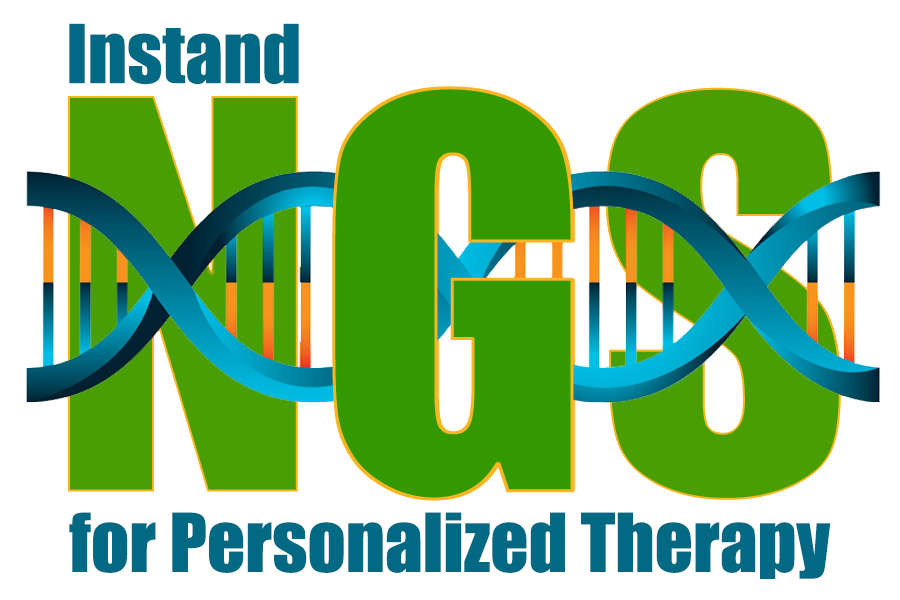Technical University of Munich
Short Name: TUM
Country: DE
Website: www.path.med.tum.de
Organization description:
The Institute of Pathology of the Technical University of Munich is associated with the Klinikum Rechts der Isar, Munich, a 1100-bed hospital treating 40,000 in-house patients and 170,000 out-patients yearly. The Institute of Pathology has a biobank core-facility, hosting about 1.1 Mio formalin-fixed paraffin-embedded (FFPE) and more than 25,000 cryo-conserved tissue samples and associated medical data. TUM provides DIN EN ESO/IEC 17020 accredited histopathological and molecular analyses for research purposes and diagnostics.
Expertise:
The research interests include the development of novel technologies for DNA, RNA, and protein based molecular pathology using formalin-fixed and frozen tissue-based techniques for individualization of cancer diagnosis and treatment. In addition, the Institute is performing research studies in order to define the critical steps of tissue processing during the preanalytical phase. The results of these studies formed the basis for European and International Standards on the preexamination phase published in 2015 and 2018.
Facilities: The Institute of Pathology and its molecular pathology laboratory are accredited according to DIN EN ISO/IEC 17020; facilities available for isolation of RNA, DNA and protein, quality control, RNA analysis by real-time RT-qPCR, DNA Next Generation Sequencing (NGS), Tissue Microdissection, tissue microarrayer (TMA), Reverse Phase Protein Array (RPPA) technology and Biobanking at -80°C and liquid Nitrogen.
Number of NGS analyses per year -> 745 (encompassing Oncomine BRA panel, colorectal cancer panel, gastrointestinal stroma tumors panel, oncomine focus panel, and oncomine comprehensive panel)
Other European projects:
- SPIDIA
- IMPACTS
- BBMRI-ERIC
- SPIDIA4P
Role in the project:
Because of our expertises in NGS and European and International Standardization activities, TUM will be involved in WP1, WP2, WP3, WP4, WP5, WP6, and WP7.
TUM will define the specific needs of medical, technical, regulatory and health economic requirements for NGS for routine diagnostics (WP2) and define a fully integrated and standardized NGS workflow with the specific EQA for patients and supporting clinicians’ decision-making (WP3). By participating and organizing workshops and writing scientific papers, TUM will be involved in dissemination and exploitation of project results (WP5). Because TUM is dealing with human samples and personalized data, TUM will be involved in WP 6 (Ethics). Finally, as a member of the German delegation and project leader at the CEN/TC140 WG3 and ISO/TC212 WG4, TUM will participate in WP7 for the development of European and ISO International Standards focusing on NGS.
Key personnel:
Prof. Dr. Karl-Friedrich Becker
Prof. Dr. Karl-Friedrich Becker, Prof. Becker (male) is Head of the Laboratory for Experimental Pathology and Scientific Director of the biobank of the Medical School of the Technical University of
Munich, Germany. As partner of the European large-scale project SPIDIA (www.spidia.eu) and the m4 Munich Cluster of Excellence (www.m4.de) he analysed the variability of protein and phosphoprotein levels in clinical tissue specimens during the pre-analytical phase. Prof. Becker is expert and project leader of CEN/Technical Committee 140 (In-vitro Diagnostic Medical Devices) Working Group 3 and ISO/TC 212 (Clinical Laboratory Testing and In vitro Diagnostic Test Systems) Working Group 4. He is chair of the Working Group 2 in BBMRI-ERIC`s program on quality management aiming to implement CEN and ISO International Standards in European biobanks. He has published more than 158 peer reviewed papers.
Dipl. Biol. Nicole Pfarr
Dipl. Biol. Nicole Pfarr, Nicole Pfarr (female) is Head of the molecular pathology diagnostic unit and the Head of the NGS Research Facility of the Institute of Pathology, Technical University Munich. Nicole Pfarr is expert in applying different next generation sequencing technologies for the analysis of formalin-fixed paraffin embedded tissue specimens in routine diagnostics. She is involved in the establishment of the national network genomic medicine for lung cancer in Germany. Furthermore, she is one of the leading scientists in Germany establishing and standardizing NGS for routine diagnostics in the molecular pathology. She has published more than 65 peer reviewed papers.
Main publications and awards:
Publications:
The Cancer Genome Atlas (TCGA) Research Network. Integrated Genomic Characterization of Pancreatic Ductal Adenocarcinoma. Cancer Cell. 2017
Aug 14;32(2):185-203.e13. doi: 10.1016/j.ccell.2017.07.007.
Becker KF. Using tissue samples for proteomic studies-critical considerations. Proteomics. Clinical applications. 2015; 9(3-4):257-67;
Gündisch S, Grundner-Culemann K, Wolff C, Schott C, Reischauer B, et al. Delayed times to tissue fixation result in unpredictable global phosphoproteome changes. Journal of proteome research. 2013; 12(10):4424 34.;
Gündisch S, Hauck S, Sarioglu H, Schott C, Viertler C, et al. Variability of protein and phosphoprotein levels in clinical tissue specimens during the preanalytical phase. Journal of proteome research. 2012; 11(12):5748 62.
ISO International Standards and European Standards: ISO 20166-1:2018; ISO 20166-2:2018; ISO 20166-3:2018; ISO 20184-1:2018; ISO 20184-2:2018; CEN/TS 16827-1:2015; CEN/TS 16827- 2:2015; CEN/TS 16827-3:2015; CEN/TS 16826-1:2015; CEN/TS 16826-2:2015.
Awards:
- 2016 DIN Prize winner, “New pre-analysis standards increase the reliability of molecular diagnostics and enhance reproducibility of results in life sciences research”;
- Novartis Oncology Research Prize for Pathology (2012, second place).
